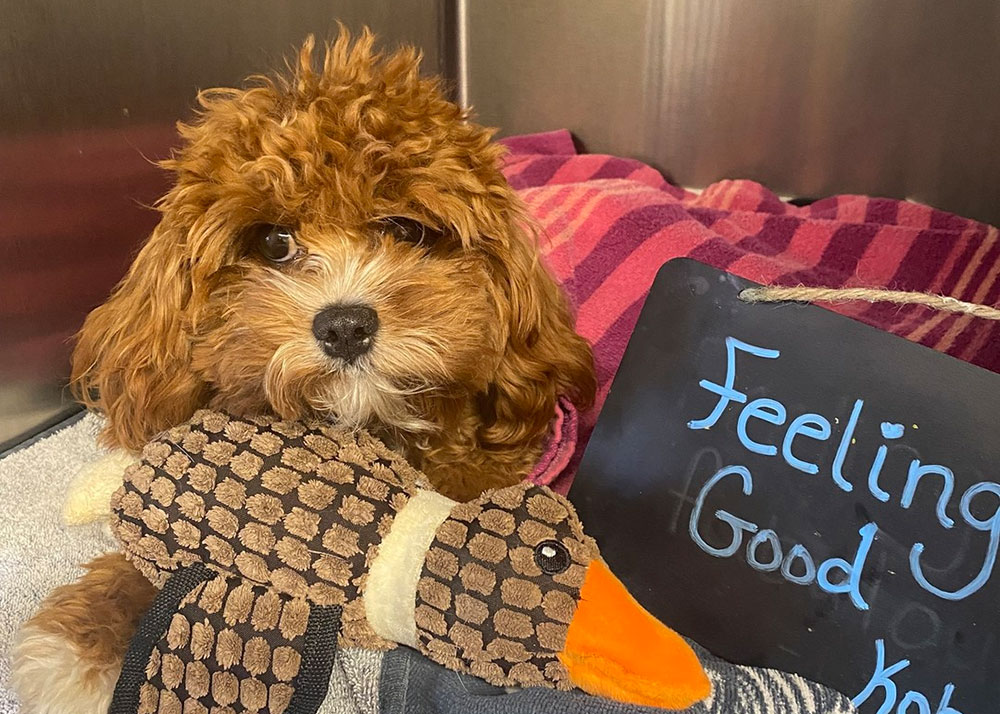FAQs
Every day our doctors and staff get asked questions by caring pet owners wanting to know more about our clinic and how to best take care of their pets. We’ve made this FAQ’s list to include questions that we get about pets as well as questions that we get about our pet clinics. Have a question you don’t see below? Contact us with any questions you may have!
Do you offer payment plans?
Unfortunately, we do not offer any payment plans at this time. We request that you pay for services provided at the time of your pet’s visit. If you have any questions about our payment policy, please feel free to ask.
We recommend that you include the cost of veterinary care in your annual expenses. However, we understand that this sometimes isn’t possible. If you contact us ahead of time, we can help you determine ways to keep costs down and stay within your budget. For instance, some preventive veterinary care can be spread out over several visits. Your veterinarian will work with you to come up with a cost-effective plan to keep your pet current on vaccinations and other necessary services.
We do accept major credit cards, as well as veterinary insurance plans, which can help cover many routine and emergency services.
Why can’t my pet see the same veterinarian/veterinary technician each time we visit?
We make every effort to accommodate our clients’ requests. However, there may be circumstances that prevent a certain veterinary team member from being available during your pet’s visit. Scheduling conflicts, emergency situations, and vacation schedules all play a role in their availability. Please feel free to ask for a specific veterinarian or veterinary technician when you schedule your appointment, and we will do what we can facilitate your request. However, please be understanding if we can’t. All of our team members are highly skilled professionals who look forward to your pet’s visit.
I’m worried about my pet’s upcoming surgical procedure. What do you do to help ensure your patients’ safety during surgery?
Our veterinary team takes every precaution so that your pet receives the highest-quality care. We perform a physical exam and pre-anesthetic testing before surgery and monitor your pet during surgery. During the anesthetic procedure, a veterinary technician will continually monitor your pet’s condition with state of the art monitoring equipment including ECG, blood pressure, End tidal CO2, Oxygenation, heart rate, and respiration. We also provide appropriate pain medication to keep your pet comfortable during recovery.
Why do you check my pet's weight every time he/she comes in for a visit?
We keep track of your pet’s weight just like your doctor’s office keeps track of your height and weight each time you visit. Having an accurate and current measurement of your pet’s weight will help us ensure that we prescribe the right dose of preventives, medications, and any needed anesthetics. It can also help us notice any early clues to health concerns. In addition, a regular weigh-in can help you track and manage your pet’s weight.
My pet is really well trained. Does he/she need to be on a leash/in a carrier when we visit the hospital?
For the safety and protection of all clients, patients, and veterinary team members, we require all pets to be on a leash or in a carrier when they arrive at our hospital. They must continue to be restrained while they are in the reception area and while traveling to and from the exam rooms. Your veterinarian or veterinary technician will let you know when it’s OK to let your pet off leash or out of his or her carrier.
There is often a lot going on at our hospital. Combine that with unfamiliar surroundings and new animals, and any pet—even one that is well trained—might become uneasy or overly excited. We want you and your pet to have as pleasant an experience as possible every time you visit our hospital, so we ask all our clients to respect our policy.
What vaccinations does my dog/cat really need?
Your veterinarian will determine which vaccinations are appropriate for your dog or cat, based on individual factors, such as lifestyle and health status. Veterinarians commonly recommend that dogs be vaccinated against rabies, distemper, Lyme, and Leptospirosis parvovirus and that cats be vaccinated against rabies and panleukopenia (feline distemper). Additional vaccines, such as feline leukemia virus (FeLV), feline immunodeficiency virus (FIV), and Bordetella (kennel cough), Lyme, and Leptospirosis are recommended based on your cat or dog’s risk.
Many of these diseases can be fatal to your pet. Preventing them is far easier and less expensive than treatment. If you would like more information on vaccines, ask your veterinarian.
Why should I have my pet spayed or neutered? Why are these procedures so expensive?
Spaying and neutering can have major benefits for your pet, including lowering or preventing the risk of several diseases and types of cancer. Your veterinarian will be happy to discuss these benefits. In addition, spaying and neutering helps control the pet population by reducing the number of unwanted pets.
Spaying and neutering are surgical procedures that require your pet to be put under anesthesia. The cost of these procedures takes into account the anesthesia, your veterinary team’s time and expertise, monitoring, drapes, suture material, and hospitalization. Spaying or neutering your pet is much less expensive than feeding and caring for litters of unwanted puppies or kittens or dealing with potential pregnancy complications.
What forms of payment do you accept?
We can accept any of the following payment methods:
- Cash
- Personal checks
- Visa
- MasterCard
- American Express
- Discover Card
- CareCredit
- Scratchpay
We can submit claims to most pet insurance companies.
Can I call and have you fax a copy of my pet’s rabies certificate and proof of vaccinations to the kennel where my pet will be staying?
We’d be happy to send proof of vaccination to your pet’s kennel. Just let us know the fax number.
I think something’s wrong with my pet. Can I call you and have a veterinarian give me a diagnosis over the phone?
Veterinarians can’t diagnose over the phone. Besides being unethical and illegal, diagnosing by phone doesn’t allow veterinarians to physically examine a pet. A physical exam is necessary so your veterinarian can provide an accurate diagnosis and proper treatment. Treating a pet for the wrong disease or condition will cost more in the end and could be harmful or even deadly to your pet.
I have a hard time controlling my pet in the lobby. Can I make arrangements so I can take him/her into the exam room right away when I arrive?
We are happy to make arrangements to help make your visit as smooth and convenient as possible. When you call to schedule your appointment, please let us know that you would prefer to wait in an exam room.
I brought my pet to see the veterinarian for a problem, and my pet isn’t getting any better. What can I do?
Call us. Just like doctors, veterinarians sometimes need to try more than one treatment/medication to find the correct solution to cure or manage a pet’s condition. Please let us know if something we recommended or prescribed isn’t helping. We want to work with you to find the right answers for your pet.

